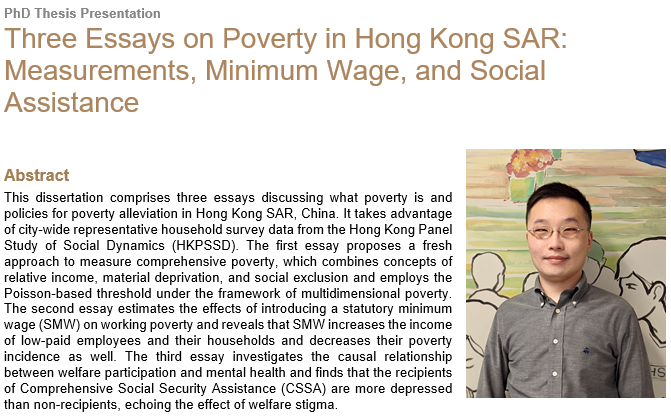Abstract
This dissertation comprises three essays discussing what poverty is and policies for poverty alleviation in Hong Kong SAR, China. It takes advantage of city-wide representative household survey data from the Hong Kong Panel Study of Social Dynamics (HKPSSD). The first essay proposes a fresh approach to measure comprehensive poverty, which combines concepts of relative income, material deprivation, and social exclusion and employs the Poisson-based threshold under the framework of multidimensional poverty. The second essay estimates the effects of introducing a statutory minimum wage (SMW) on working poverty and reveals that SMW increases the income of low-paid employees and their households and decreases their poverty incidence as well. The third essay investigates the causal relationship between welfare participation and mental health and finds that the recipients of Comprehensive Social Security Assistance (CSSA) are more depressed than non-recipients, echoing the effect of welfare stigma.

